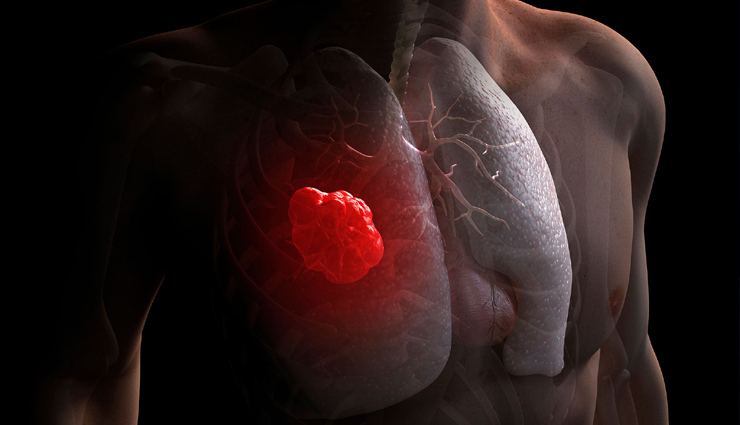- Home›
- Healthy Living›
- 10 Early Signs That Help You Detect Lung Cancer
10 Early Signs That Help You Detect Lung Cancer
By: Priyanka Maheshwari Fri, 21 Aug 2020 09:53:11

Approximately 40% of patients with lung cancer are diagnosed at an advanced stage, and one-third of those diagnosed have usually reached stage III. The warning signs or noticeable symptoms of lung cancer are not always present in the early stages. But if one can relate the risk factors with patient lifestyle and one or more of the below-mentioned symptoms, then early screening may help in early diagnosis and prompt treatment.
These symptoms are also seen in other lung diseases. To have a definitive diagnosis, consulting your doctor is very essential. An early screening will also help in receiving prompt treatment that can increase the chances of survival. Like and share this blog to create awareness of the early signs of this cancer
Persistent cough
Be alert if your cough doesn’t wane within two weeks. Chronic, persistent, dry or wet coughing may be a sign of lung cancer. So, don’t ignore this symptom and see your doctor immediately.
Changes in coughing
Pay attention to any changes in your chronic cough such as a deeper cough or a hoarse sound while coughing, particularly if you are a smoker. If you are coughing more often, visit your doctor.
Shortness of breath
If you notice difficulty in breathing or shortness of breath while performing a task that you might have done easily in the past, then it may be a symptom of lung cancer. Lung tumors or the fluid from the tumors can block the airway or cause fluid buildup in the chest, leading to shortness of breath.

Pain in the chest area
Chest pain with or without coughing, and pain in the shoulders, or back may indicate lung cancer. Any chest pain, which is dull, constant, sharp, or intermittent, must be reported to your doctor.
Wheezing
Wheezing is a whistling sound. This sound is observed in people with asthma or allergies when they breathe. If wheezing persists, consult your doctor to find the cause as it may be associated with lung cancer.
Voice changes (Raspy, hoarse voice)
If you notice any significant changes in your voice such as a more hoarse, deeper, or raspier voice, consult your doctor immediately. Hoarseness may result from a simple cold. But if this symptom persists for more than two weeks, then it might be suggestive of something unusual. The patient’s voice changes due to lung cancer when the tumor affects the nerve that controls the voice box.

Persistent chest infections
Lung infections which include bronchitis and pneumonia, that keep recurring may be a risk factor for lung cancer.
Headache
A lung tumor exerts pressure on the superior vena cava, a large vein that moves blood from the upper body to the heart. This pressure can trigger a headache.
Weight loss, fatigue, loss of appetite, and weakness
Weight loss, fatigue, loss of appetite, and weakness are non-specific symptoms and can be seen with other cancer types and diseases, but if they persist; visit your doctor to find the cause.
Bone pain
If lung cancer has spread to the bones, it may result in back pain or ailments in other areas of the body. Lung cancer is also associated with arm, shoulder, or neck pain, although this is rare. Be cautious about these symptoms and discuss them with your doctor.
Related Stories:
# Here are Some Benefits of Watching Horror Movies for Our Health
# Health Benefits of Waking Without Using Your Footwear
# 12 Benefits of Swimming For Lungs
# Amazing Health Benefits of Soaking Feet in Warm Water
# Reasons Why You Should Drink Cold Water Empty Stomach Every Morning





